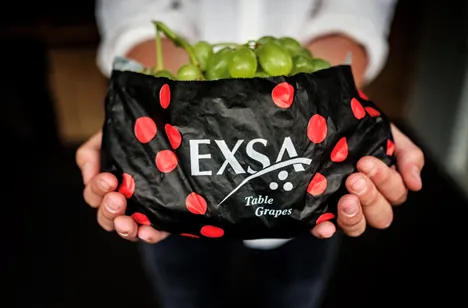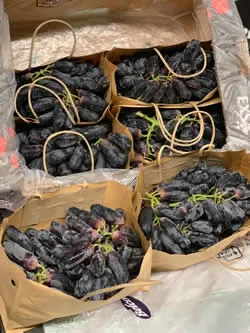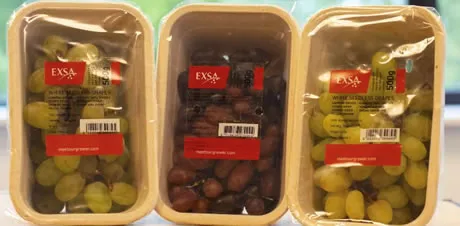This year's overseas grape season is off to a tough start in Europe. "We had a good summer for grape sales. Prices were higher prices during the European season. But this didn't continue with the grapes from Brazil and Peru," says Eddy Kreukniet of Exsa Europe. "What's unusual this year is that European countries are extending their season with better, later varieties. We're still seeing seedless varieties on the market - particularly the red varieties from Greece, Spain, and Italy. The big question is whether this is an exception. Or are we going to face this in the years to come?"

"The overseas season is going well, quality-wise. There's plenty of fruit, and the varieties are getting better and better. However, there was simply no room on the European market for Brazilian or Peruvian grapes. That was in the first weeks of the import season. That led to stock situations and low prices. Fortunately, most stocks have now been sold. But it's a future concern."

Autumn Crisp "And, honestly, European grapes' quality is increasingly improving toward the end of the season. Italy, for example, has done an outstanding job with Autumn Crisp. The European season is now mostly over," continues Eddy.
"And, honestly, European grapes' quality is increasingly improving toward the end of the season. Italy, for example, has done an outstanding job with Autumn Crisp. The European season is now mostly over," continues Eddy.
"It rained on the last seeded grapes still hanging in Italy last week. Those were getting in the way of the overseas grapes anyway. You can only keep the overseas fruit for a couple of weeks. That's why we had to lower prices to the European level."
"We had to face the challenges posed by COVID-19 too. All product groups, including grapes, have been hit with the closure of the hospitality industry. Retail sales are going well. However, unlike the first lockdown, they aren't compensating for the hospitality sector's loss anymore. If you have a steady supply, that's a problem," Eddy observes.

Christmas programs
According to this producer, prospects are very uncertain. "The South African and Namibian seasons have slowed considerably. Production is only really starting now. That's two weeks later than usual. That means the larger volumes are too late for the Christmas programs. I expect a poor market from next week to Christmas. It's also difficult to estimate what will happen from January onwards."
"South Africa has a good harvest. It's now expected to be +5 to 10%. So, in January, there may be more fruit on the market at the same time. Yet, experience shows that more volume is lost in a late season. I think this production increase will lead to challenges. Not right away in January, but later in the season," Eddy concludes.
 For more information:
For more information:
Eddy Kreukniet
Exsa Europe
Tel: +31 (0) 887 350 003
Mob: +31 (0) 620 257 811
Email: info@exsaeurope.com
Website: www.exsaeurope.com
